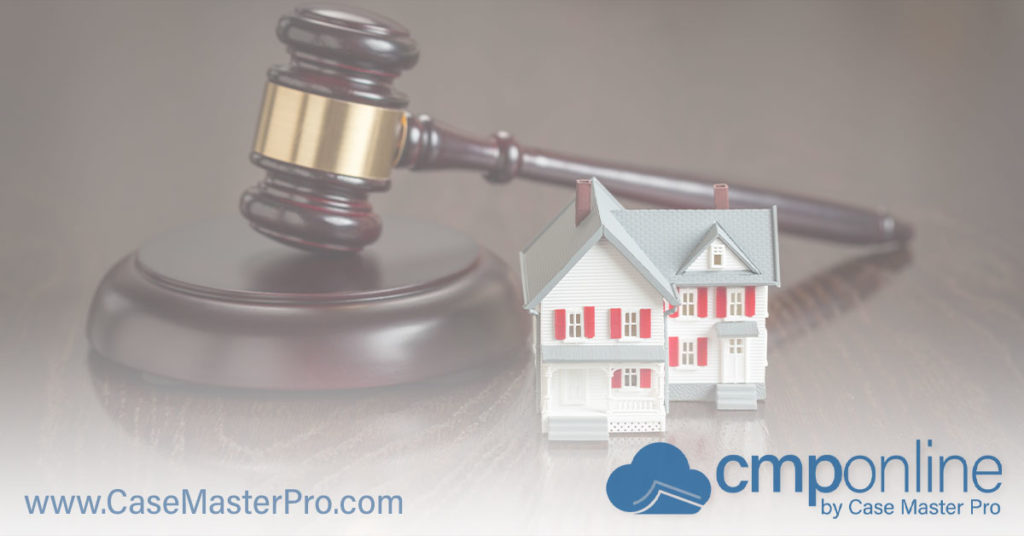
Real estate debt collection is a vital part of maintaining cash flow and property management. With stakes high, understanding the nuances can make or break your success as an attorney. You’ll learn how to issue formal notices effectively when rent falls behind and to navigate the tricky waters of eviction legally and efficiently.
Dig deeper into commercial real estate debt, exploring its unique challenges and legal strategies for resolution. Compare tactics between collecting debts from commercial versus residential real estate, with insights on negotiating repayment plans that work.
Tackle estate debts head-on by mastering settlement processes and probate navigation while managing creditor claims adeptly. For those involved in real estate debt funds, grasp investment strategies along with regulatory compliance to streamline fund operations.
Issuing Formal Notice when Rent is Overdue
Tenants sometimes fall behind on rent. It’s a fact of the property business. But as an attorney, you know that clear communication and following legal protocols are key to resolving these issues efficiently.
Demand Letters: The First Step in Debt Recovery
A well-crafted demand letter serves as the initial reminder for tenants that their payment is overdue. This isn’t just a courtesy; it sets the stage for any necessary legal action later on. Your demand letter should state clearly how much is owed, provide evidence of the debt like lease agreements or previous communications, and give a specific deadline for payment before further actions are taken.
This step can often motivate tenants to settle their debts quickly—especially when they understand potential consequences like eviction proceedings could follow if they don’t pay up.
Notices to Quit: Escalating Legal Action When Necessary
If your client’s tenant doesn’t respond to demand letters, issuing a notice to quit might be next in line. As attorneys handling real estate collections know all too well, this document formally informs tenants they must either pay what’s due or vacate the premises by a certain date—and it’s essential before filing an eviction lawsuit.You’ll need to familiarize yourself with state-specific laws since timelines and requirements vary greatly across jurisdictions.
Navigating Timeframes and Legal Requirements
The law stipulates specific rules around notices – from how they must be delivered and what information they need to contain, even down to the timing involved. Landlords are typically required by state laws, like Florida stat. § 83.56(3), to provide at least three days’ notice before moving forward with eviction proceedings due to non-payment of rent. You’ll want to make sure these details are correct—any errors could jeopardize your case if things escalate into court proceedings later on.
The Role of Lawyers in Communicating with Tenants Effectively
In our experience at CMPOnline, effective communication between lawyers and tenants during debt collection makes all the difference—not only does it help preserve relationships where possible but also demonstrates professionalism throughout potentially tense situations. Crafting messages that convey urgency without aggression requires skill. Language choice matters immensely here because harsh words can escalate conflict unnecessarily, while soft-pedaling may not communicate seriousness adequately.
Furthermore, transparency about options available—for example discussing repayment plans—is crucial so both parties feel heard through this process.
Last but not least, make sure you keep accurate records at every stage, from the initial late notice to the final resolution—whatever that may look like.
Key Takeaway: When rent is late, start with a clear demand letter to avoid legal hassles. If that fails, issue a notice to quit before eviction. Clear communication and solid records can make or break debt collection.
Legal Steps for Evictions

An eviction is a legal process where landlords seek to regain possession of their property from tenants. To kick off this complex procedure, it’s critical to follow the letter of the law meticulously.
Filing for Eviction
The initial step in an eviction process involves filing a petition with the local court. This action requires detailed documentation, such as proof of non-payment or violation of lease terms by the tenant. Lawyers must ensure all paperwork aligns with state-specific regulations and deadlines. The key here is precision. Any misstep could lead to delays or dismissal.
Once filed, tenants are served with notice and have an opportunity to respond before a hearing date is set. Attorneys play a vital role at this stage—preparing evidence and coaching clients on courtroom protocol can make all the difference.
Court Proceedings
In court, presenting your case clearly and effectively matters most—a strong argument often hinges on how well you communicate facts over emotions. Landlords need solid representation because judges demand concrete reasons backed by incontrovertible evidence when deciding whether an eviction is justified.
Your client’s presence might be required during proceedings, depending on jurisdictional mandates, so coordinating schedules becomes part of your task list too.
Obtaining an Eviction Order
If successful in court, obtaining that crucial piece of paper—the eviction order—is next up but don’t relax yet. Enforcement lies ahead which means liaising with local authorities who will carry out the physical removal if necessary.
This phase calls for patience (as timelines vary widely across different locales) as well as vigilance. Keeping tabs ensures no hold-ups occur due to administrative hiccups or oversight.
Post-Eviction Procedures
Moving past actual evicting entails dealing with what’s left behind: Tenant belongings may remain after they vacate, posing additional challenges regarding storage laws among other concerns.
Navigating these waters deftly prevents potential liabilities cropping up post-eviction—thus advice here cannot be understated.
Key Takeaway: Start your eviction process by nailing the paperwork and knowing the law inside out. In court, it’s all about clear facts over feelings—bring proof and prep well. Once you win, stay sharp. Getting that eviction order enforced is a whole new game.
Commercial Real Estate Debt

When dealing with commercial real estate debt, it’s critical to understand its multifaceted nature. This type of debt encompasses a range of financial obligations incurred in the acquisition, development, and maintenance of commercial properties.
Overview of Commercial Real Estate Debt
The landscape of commercial real estate (CRE) debt is complex due to the variety and terms of financing options available. These debts can arise from mortgages secured by commercial property or loans for construction projects. It’s essential for lawyers specializing in CRE collections to navigate these waters with precision because they impact how recovery strategies are formulated.
Different types of lending institutions—including banks, insurance companies, and private lenders—play significant roles in providing capital for CRE ventures. As such, understanding each lender’s terms and legal standing is paramount when crafting collection approaches.
Types of Commercial Real Estate Debt
Categorizing CRE debts can help clarify which legal tactics may be most effective during collections. Senior mortgages hold priority over subordinate financing structures like mezzanine loans or junior liens, hence their recovery processes differ considerably.
Beyond traditional loan models lie vehicles like real estate investment trusts (REITs), which might also involve complex layers including securitized products that demand nuanced handling during delinquency scenarios.
Common Reasons for Commercial Real Estate Debt
Fiscal challenges leading to CRE debt often stem from market volatility but can include factors like tenant default or unforeseen operational costs that impede cash flow management within businesses occupying these spaces—a reality that seasoned attorneys will attest impacts enforcement actions significantly.
Legal Considerations in Commercial Real Estate Debt Collection
Navigating through the legal maze requires an acute awareness not only about state-specific statutes governing collections but also insights into contractual nuances across various loan agreements—aspects where experienced counsel brings invaluable expertise on board while ensuring compliance throughout every step taken towards resolution efforts.
Unique Challenges in Commercial Collections
In comparison with residential counterparts, collectors encounter unique hurdles within this realm, stemming partly from business entities’ protections under law versus individual consumers’ rights. This, in turn, necessitates strategic planning before initiating any formality toward recovering dues owed without contravening pertinent regulations affecting creditor-debtor relationships within a corporate context.
From negotiating workouts tailored to specific debtor circumstances to employing foreclosure proceedings judiciously, each case demands bespoke solutions developed based upon thorough analysis given underlying asset values alongside borrowers’ creditworthiness assessments crucial in deciding next moves executed effectively to achieve favorable outcomes for creditors alike.
In summary, deploying expertise from multiple angles is essential for a well-rounded strategy. It allows for comprehensive solutions that tackle challenges effectively and creatively. By leveraging diverse skills and perspectives, teams can anticipate potential problems and innovate more efficiently. This multidimensional approach often leads to improved performance and competitive advantage.
Key Takeaway: Mastering commercial real estate debt collection means knowing the ropes of complex financing structures and legal landscapes. Smart strategies consider lender terms, prioritize debts smartly, and adapt to unique business protections—all while keeping an eye on compliance.
Commercial vs Residential Mortgage Debt Collection

The process of collecting mortgage debts in the commercial sector often involves intricate negotiations and legal strategies, owing to the complex nature of these loans. On the other hand, residential mortgage debt collection tends to follow a more standardized set of procedures that align with consumer protection laws.
Distinct Characteristics of Commercial and Residential Mortgages
When handling collections for commercial mortgages, attorneys must consider factors like loan-to-value ratios and borrower financials which can greatly impact recovery efforts. For residential debts, one’s focus shifts towards adherence to federal regulations such as those outlined by the Consumer Financial Protection Bureau (CFPB).
Differentiating between these two types is crucial for lawyers because each requires a unique approach during collection proceedings. The business-oriented nature of commercial real estate lending agreements, including balloon payments or interest-only periods, adds layers that typically aren’t present in home mortgages.
Legal Differences in Debt Collection Approaches
In terms of legality, foreclosure on a commercial property may lead an attorney down paths involving UCC filings or receivership appointments—avenues not usually explored with residential properties. Additionally, protections under fair debt collection practices do not uniformly apply to businesses as they do individuals.
This means when strategizing for debt recovery solutions, nuances such as guarantor liability and corporate structure become significant discussion points in a way they seldom are when dealing with personal dwellings.
Commercial Mortgage Debt Collection Strategies
Navigating through collections on defaulted commercial loans often entails analyzing lease agreements associated with the mortgaged property since tenants’ rent payments could be essential in repaying creditors. Attorneys might also negotiate deed-in-lieu arrangements where borrowers voluntarily transfer ownership back to lenders—a less common resolution among residential defaults due to different underlying motivations from homeowners versus investors.
Residential Mortgage Debt Collection Tactics
Collections within this realm heavily prioritize compliance—with laws designed specifically around safeguarding consumers from unfair practices taking center stage—and thus require detailed knowledge about legislation like RESPA (Real Estate Settlement Procedures Act) or TILA (Truth In Lending Act). Furthermore, avenues such as loan modifications serve as viable alternatives before resorting to foreclosures. Preserving homeownership remains at heart here much more than recouping investments does elsewhere.
Negotiating Repayment Plans Across Both Realms
It’s crucial to strike a balance, negotiating terms that clients can manage without compromising the lender’s position. By doing so, attorneys play a key role in navigating these financial waters, helping secure outcomes that are sustainable for all parties involved.
Key Takeaway: Commercial mortgage debt collection is a complex dance of legal moves and negotiations, while residential collections play by strict consumer protection rules. Lawyers need to pivot their approach depending on the property type—think loan-to-value ratios for commercial and federal regulations, like those outlined by the CFPB, for residential.
In commercial cases, strategies may include dissecting lease agreements or negotiating deed-in-lieu deals, whereas in the residential scene, staying compliant with laws protecting homeowners is key. Both realms call for smart repayment talks that keep both sides—the borrower’s ability to pay and the lender’s rights—in mind.
Estate Debt

When handling estate debt, attorneys must navigate a complex legal landscape. This involves understanding the various types of debts that can be associated with an estate and managing them through the settlement process.
Types of Debts Associated with Estates
The array of obligations tied to an estate is vast and may include secured debts like mortgages, as well as unsecured ones such as credit card balances or medical bills. It’s crucial for lawyers to accurately identify each creditor claim because it impacts how these claims are addressed during probate proceedings.
To streamline this task, many law firms leverage technology solutions like Case Master Pro, which helps organize and track different debt categories efficiently.
Estate Debt Settlement Process
Negotiating settlements often calls for a balance between satisfying creditors’ demands and preserving the value of the estate for beneficiaries. Attorneys need to consider tax implications, potential disputes among heirs, and state laws governing debt priority when crafting settlement strategies.
In some instances, leveraging professional negotiation skills can lead to reduced payoff amounts or favorable payment terms—both outcomes beneficially impacting the overall health of an estate’s financial standing.
Legal Steps in Estate Debt Collection
The probate court plays a pivotal role in mediating between estates and their creditors. Legal professionals must file timely notices on behalf of estates while adhering strictly to procedural requirements laid out by jurisdictional statutes—a failure in any step could invalidate claims against the estate or prolong resolution timelines unnecessarily.
Diligence here not only safeguards clients’ interests but also fortifies one’s reputation within the legal community for meticulous case management.
Navigating Probate and Addressing Creditor Claims
During probate administration, lawyers act as navigators through treacherous waters where missteps mean delays or lost assets. They use keen knowledge about prioritizing creditor claims according to statutory mandates—all while considering family dynamics that could affect proceedings significantly if overlooked or mishandled.
Lawyers experienced in this arena recognize opportunities where mediation might mitigate contentious issues before they escalate into full-blown litigation—a scenario best avoided due to both cost efficiency considerations and the emotional tolls involved parties endure throughout lengthy courtroom battles.
By tapping into CMPOnline’s robust tools, you can speed up your decision-making and streamline collections. This lets you zero in on delivering top-notch service to your clients—where your attention really belongs.
Key Takeaway: Attorneys can streamline estate debt collection by using tech like CMPOnline, balancing creditor demands with heirs’ interests and tapping into legal expertise to navigate probate complexities efficiently.
Real Estate Debt Funds

Attorneys need to be well-versed with the intricacies of real estate debt funds, a critical investment vehicle for capitalizing on property-backed loans. These funds serve as an alternative to traditional mortgage lending, offering investors structured returns while giving borrowers access to financing outside conventional banking channels.
Purpose and Structure
The primary aim of these funds is to generate income by issuing loans secured against real property. Investors benefit from regular interest payments akin to receiving rent checks without dealing with physical assets directly. Structurally, these funds typically operate as closed-end investment vehicles by raising capital during an initial period before deploying it into various debt instruments over time.
Funds may target different segments within the market—ranging from residential mortgages to commercial development projects—and can be either geographically focused or diversified across regions and property types.
Investment Strategies
Different strategies govern how a fund might capitalize on opportunities within real estate markets. Some adopt conservative approaches, favoring senior secured positions that prioritize loan security above all else. Others may seek higher yields through mezzanine debt or distressed asset plays but must contend with increased risk levels.
A key part of our role involves navigating this spectrum of risk-reward trade-offs when advising clients who manage or invest in such vehicles.
Legal Framework for Real Estate Debt Funds
Case Master has legal clients who like to ensure compliance with relevant securities laws which dictate how these funds can raise money and what disclosures need to be made available to potential investors. This is a process often facilitated through private placements under Regulation D exemptions offered by the SEC.
Regulatory Compliance
Maintaining adherence not just at inception but throughout a fund’s lifecycle is crucial for legal professionals working in this space. We continuously monitor evolving regulations like those imposed by the Dodd-Frank Wall Street Reform and Consumer Protection Act that impacts lender practices significantly within private credit markets where many real estate debt funds operate.
This includes ensuring that any servicing agents involved comply fully, both federally and state-wise—particularly pertinent given the recent scrutiny over servicer conduct post-financial crisis.
Investor Relations and Debt Collection Practices
Case Master has observed that law firms frequently play a crucial role in influencing investor communication policies. These policies serve as the lifeblood, ensuring stakeholders stay informed about performance metrics and portfolio health indicators, including default rates or recovery timelines in the event of unforeseen challenges.
Another critical aspect is overseeing collections activities: drafting comprehensive policies around delinquency management ensures fair treatment aligned closely with regulatory guidelines.
Key Takeaway: Real estate debt funds offer savvy investors structured returns from property loans and give borrowers an alternative to traditional banks. Lawyers play a key role, advising on investment risks and ensuring everything is above board with securities laws. They also keep investor relations smooth and collection practices fair.
FAQs in Relation to Real Estate Debt Collection
What are the first steps in real estate debt collection?
Begin with a clear demand letter, outlining the overdue rent or debt, followed by legal notices if necessary.
How should eviction proceedings be initiated?
File a petition with the local court and ensure all documentation is precise to avoid delays or dismissals.
What are the differences between commercial and residential debt collection?
Commercial debt involves complex financial structures, while residential debt collection must adhere to strict consumer protection laws.
How can lawyers help manage estate debt?
Lawyers navigate probate, prioritize creditor claims, and negotiate settlements to preserve estate value.
Conclusion
So you’ve navigated the tricky currents of real estate debt collection. You know now how to handle late rent with formal notices and how to push through evictions without a hitch.
You’ve compared commercial and residential mortgage recovery methods, picking out strategies that fit like a glove. You’re versed in smoothing out estate debts and managing probate like a pro.
Remember: every notice served and every eviction filed is all part of keeping your business strong. Real estate debt collection isn’t just about getting what’s owed, it’s about maintaining healthy cash flows for long-term success.
Dive into those investment strategies with confidence. Keep your eyes on compliance as you steer through the legalities of real estate debt funds.
Your journey doesn’t end here. It starts with these insights locked down tight, then builds from there!
Ready to take your practice to the next level of Debt Recovery? Case Master Pro offers SaaS-based Debt Collection Software tailored specifically for lawyers like you. With our tools at your disposal, navigating through the debt collection industry becomes easier than ever before. Visit Case Master Pro and request a FREE DEMO today to start transforming how you handle real estate debt collection cases!
